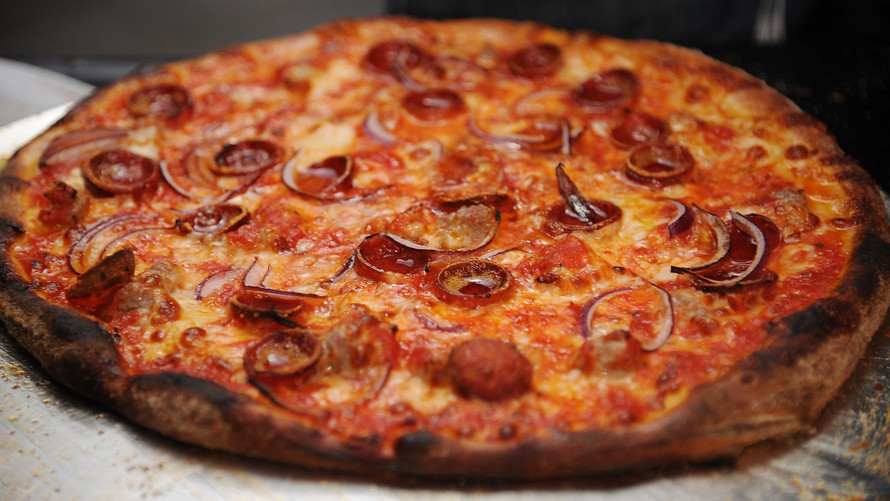Blood pressure is one of several health factors companies consider when deciding your life insurance rates. Having high blood pressure adds stress to your arteries and leads to serious problems such as heart disease and strokes.
Unlike some life insurance pricing variables that are out of your control, such as your age, blood pressure is something you can change. Even if high blood pressure runs in your family, a healthy lifestyle can keep yours in check.
One of the best steps you can take is limiting foods loaded with sodium, which has a particularly negative impact on blood pressure. The American Heart Association advises no more than 2,300 mg of sodium a day for most people (about one teaspoon of salt), and no more than 1,500 mg a day for the greatest improvement in blood pressure.
Unfortunately, the average American takes in much more than that — more than 3,400 mg daily, according to the association.
The ideal sodium intake is 1,500 mg a day or less. Here’s how much salt your favorite not-so-healthy foods are adding to your system, according to the Centers for Disease Control and Prevention.
- Cheeseburger: 710-1,690 mg
- Corn dog: 350-620 mg
- Chicken strips/nuggets: 200-900 mg per 3 oz. serving
Prepackaged or deli products
- Deli turkey breast: 450-1,050 mg per 3 oz. serving
- Barbecued pork: 600-1,120 mg per 5 oz. serving
- Processed American cheese: 330-460 mg per 1 oz. slice
- Canned pasta and meat sauce: 530-980 mg per cup
- Canned chicken noodle soup: 100-940 mg per cup
Pizza
- Restaurant pizza: 510-760 mg per 4 oz. slice, no toppings
- Frozen pizza: 370-730 mg per 4 oz. slice, no toppings
White bread
- 80-230 mg per slice
Potato chips
- 50-200 mg per 1 oz. serving
The worst offenders
You may have already guessed that fast-food items, such as cheeseburgers, aren’t the best for your health. But that’s far from the only food to avoid when watching your blood pressure.
 Getty Images
Getty ImagesDeli meats are often cured to last longer and add flavor, which also leaves them high in sodium. And if you sandwich the meat between slices of white bread, you’ve already made a sizable dent in your daily salt allotment.
Similar to deli meat, prepackaged and processed items, like pasta and soup, often contain added sodium for a longer shelf life.
Pizza is another perilous meal choice: Just one slice of plain cheese can pack about half the recommended daily sodium amount.
To cut down on sodium, try these healthy-eating tips:
- Eat more fresh fruits and veggies
- Cook from scratch. Only 5% of the sodium Americans consume is added during cooking, while 75% comes from prepackaged, processed or restaurant food, according to the Centers for Disease Control and Prevention.
- Check nutrition labels closely. This can help you pinpoint low-sodium choices among foods with endless varieties, like bread or chips.
- If you go out to eat, request salt be left out of your order when possible
What life insurers consider good blood pressure
The American Heart Association defines a “normal” blood pressure as less than 120/80 mm Hg (millimeters of mercury). However, life insurance companies usually allow a little wiggle room for applicants hoping to qualify for the best rates.
Examples of blood pressure requirements:
With MetLife, MET, -1.84% nonsmokers age 40 and younger can crack the best pricing tier on products if they have a blood pressure of 130/80 or less. Customers age 41 to 54 can go a smidgen higher to 135/85.
AIG AIG, -0.75% requires blood pressure of 135/85 or better for nonsmokers age 60 or younger who want the cheapest term life insurance.
Voya VOYA, -2.20% sets the bar for the best rates at 135/85 for females on all of its products, and for males at 135/90.
Although cutting out the foods we love is no picnic, eating smarter could pay off substantially.
For example, we looked at life insurance quotes for a 30-year-old male of average height and weight, and with a “normal” blood pressure of 115/75. The cheapest quote we found for a 20-year, $500,000 policy was $22.75 a month.
By comparison, the cheapest rate for the same person with a blood pressure of 145/95 was $36.52 a month. Over the course of a year, that high blood pressure would amount to an extra $165. Those with very high blood pressure might also find fewer companies willing to sell to them.
Remember that your life insurance rate is based on your age, gender, health and lifestyle when you purchase the policy. If your blood pressure rises after you purchase life insurance, it won’t affect your rate.

